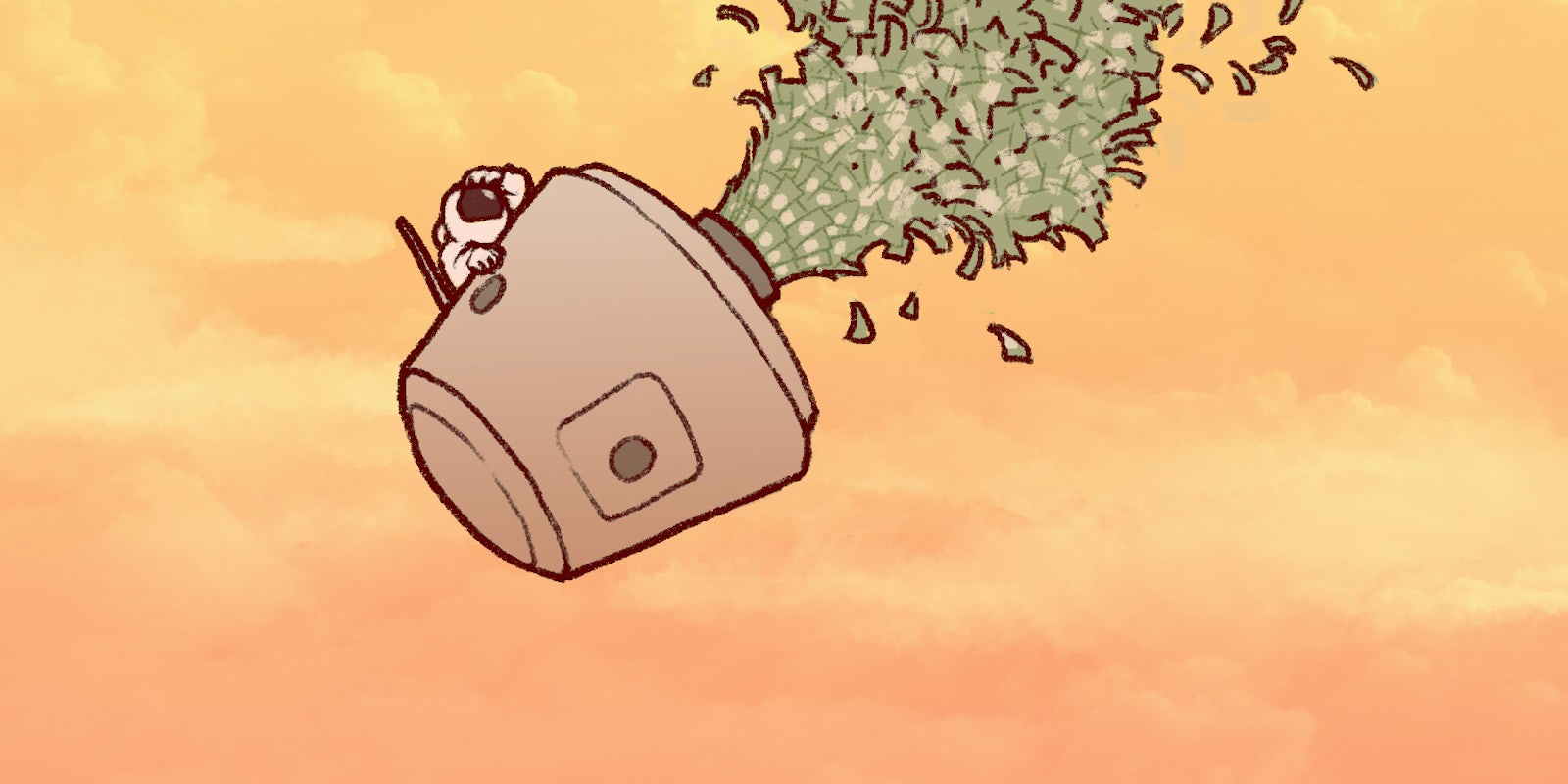The Mars One project may become the best example of why space exploration ought to be conducted by government agencies with public accountability, rather than private institutions.
Dr. Joseph Roche, who holds doctorates in physics and astrophysics, and is one of the 100 finalists for the mission, gave an interview with Elmo Keep for Medium in which Roche describes an astronaut selection process for the Mars One mission that sounds irresponsible at best.
Mars One, the proposed mission to send human beings to die on Mars, is not an initiative of NASA, or the China National Space Administration, or the European Space Agency. It is a non-profit effort that still feels like an entrepreneurial proposition, a business proposal with marketing strategists and social media experts. Only two of the eight core team members for Mars One advertise any connection to relevant experience, and only one of them has had any experience with launching a rocket into space.
The idea that Mars One is actually a business, and less a serious experiment with space exploration, comes across very clearly when Roche describes a process that sounds uncomfortably similar to how Scientology passes members into its inner ranks. Volunteers receive points for progressing through the selection process, and eventually according to Roche can only get more points by donating money to Mars One, or generating profits for the organization.
A Mars One project spokeswoman confirmed in an email to Keep that the mission hopefuls getting attention in the press earned their spots in the selection process “based on the supporter points that our community can earn.”
The spokeswoman also stated that the actual selection of who would go on the mission was not directly related to those points, which raises the question of why the points system exists in the first place. It certainly sounds like holding out false hopes for people who might not pass the sort of rigorous testing required by NASA to send astronauts into space.
Unless, of course, the process for testing a Mars One candidate’s fitness for space doesn’t even begin to approach what would be considered reasonable guidelines for space missions undertaken by sovereign states. Roche had expected to travel for regional interviews. “And in my mind that sounded at least like something that approached a legitimate astronaut selection process,” Roche said to Keep during the interview. Instead, Roche had a 10-minute Skype call.
“All the info they have collected on me is a crap video I made, an application form that I filled out with mostly one-word answers… and then a 10-minute Skype interview,” Roche said. “That is just not enough info to make a judgment on someone about anything.”
According to Roche, memorizing details about the mission’s purpose seems more important than assessments of the psychological health necessary to succeed in a space mission, in the initial interview process.
These are just problems related to astronaut selection. No one outside the project knows how much money Mars One project has actually raised, and missions like these normally cost hundreds of millions of dollars.
One of the project’s biggest supporters says that the plan is unrealistic. Keep has also published on Medium a dissection of the plan proposed by Mars One, in which he revealed that almost the entire plan is based on theory versus demonstrable fact.
Illness from exposure to radiation and cosmic rays, the danger of solar flares, dealing with a lack of sunlight on Mars, bone loss from exposure to low gravity, disrupted sleep patterns, and how the human mind deals with passing the point of no return on space flights, are all basic concerns with the sort of mission proposed by the Mars One project. No one, on the outside of the project anyway, knows how Mars One will contend with these issues.
Keep revealed that Mars One has no contracts with suppliers, and can’t begin a feasibility study for a proposed unmanned craft because Mars One doesn’t know what the proposed payload would be. American astronaut Chris Hadfield told Keep that without knowing the dimensions of the ship that space travelers would occupy, astronaut selection can’t even begin. All the technical specifications of the mission, in fact, are in question.
An MIT study into the feasibility of the Mars One mission predicted that the first astronaut would die within 68 days.
Roche is speaking out because he’s afraid that Mars One could have negative repercussions on the future of space exploration. “My nightmare about it is that people continue to support it and give it money and attention, and it then gets to the point where it inevitably falls on its face,” Roche told Keep. “People lose faith in NASA and possibly even in scientists, then that’s the polar opposite of what I’m about.”
Considering how the Mars One project is intimately tied up in propositions of reality television and audience participation—one contract the project does have is with the company that produced Big Brother—one can imagine how images of poorly selected astronauts screaming for help from Earth, broadcast across our entire planet, could set back space exploration just a titch.
H/T Mother Nature Network | Illustration by Max Fleishman


